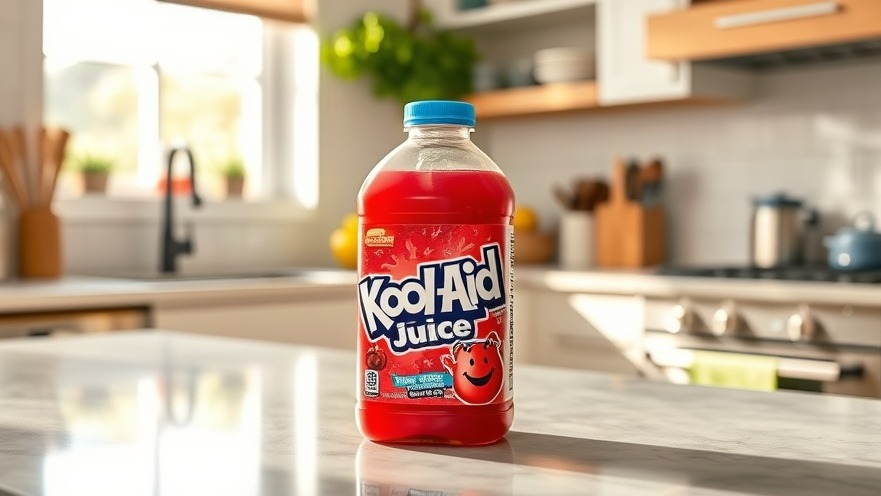
Revolutionizing Food Safety: The End of Artificial Colors
Kraft Heinz, known for its beloved brands including Jell-O and Kool-Aid, is breaking new ground in food safety by eliminating artificial food dyes across its product range by 2027. This decision comes as a direct response to pressure from Health Secretary Robert F. Kennedy Jr., underscoring the growing public demand for transparency and safety in food production.
Why This Matters: The Push for Natural Ingredients
The trend towards natural ingredients reflects a broader shift in consumer preferences. Parents, health advocates, and nutritionists are increasingly concerned about the long-term effects of artificial dyes on health. Research has linked synthetic food colors to various health issues, particularly in children, leading many to advocate for completely natural food products. This move by Kraft Heinz could be a significant leap towards meeting these consumer expectations for cleaner, safer food options.
Consumer Advocacy: The Role of Leaders in Food Reform
Leading figures like RFK Jr. are initiating important conversations about health and safety in food production. After a recent meeting with executives from major brands like Kraft Heinz and General Mills, RFK Jr. emphasized the need for immediate action to protect public health. His push showcases how public voices can inspire corporate change and set new industry standards.
The Economics of Change: Costs and Benefits
While the shift to natural ingredients may increase costs in the short term, the long-term benefits for both consumers and companies could be significant. Consumers are willing to pay a premium for healthier options, potentially boosting sales for brands that prioritize transparency and quality. Kraft Heinz's decision aligns with growing consumer enthusiasm for health-oriented products, which could help it capture a larger market share as public concern about food health implications continues to rise.
What This Means for Local Practices
For concierge medical practice owners, understanding the implications of such changes is vital. Aligning your services with the push for healthier, natural ingredients can help strengthen your relationship with patients who are increasingly health-conscious. Providing nutritional advice and emphasizing the benefits of natural foods can set your practice apart in the competitive healthcare landscape.
Practical Insights: How to Stay Ahead in Healthcare
As a concierge practice, consider implementing educational programs that inform patients about nutrition and food safety. Highlight the importance of making informed food choices in your communications, possibly even hosting workshops on how to read labels or recognize harmful ingredients. Your practice can be a resource that empowers patients to make healthier lifestyle choices.
Closing Thoughts: Embracing a Healthier Future
Kraft Heinz's decision to phase out artificial food dyes is not just a corporate shift; it represents an evolving landscape in consumer health and safety. As medical professionals, staying informed about these changes can enhance the services you provide. Engage with your patients about their preferences and encourage discussions around nutrition and health—this not only builds trust but also positions your practice as a leader in comprehensive patient care.
Take Action Now: Engage with your patients about the implications of food safety in health. Share your insights on nutrition and how your practice can provide holistic care that encompasses dietary advice. By doing so, you can foster deeper connections that result in lasting patient loyalty.
 Add Row
Add Row  Add
Add 






Write A Comment